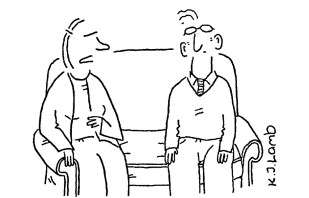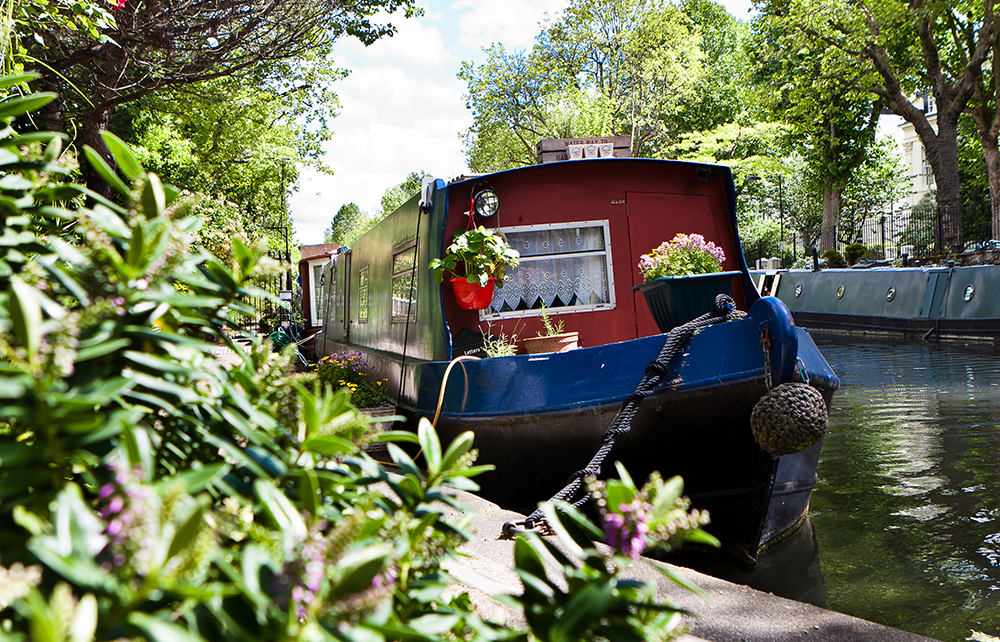In the spring of 2021 I took a man to a pub in Hackney and bought him a drink. Perhaps he should have been doing the buying, since I had just handed him a large sum in return for his narrowboat. But I was in an exultant mood. No London flat, I reasoned, could ever be as cosy as that low-ceilinged, teak-panelled interior with its coal-burning stove and narrow cabin bed. And outside it lay a pathway to adventure through the hidden districts of the capital, their parks, nature reserves, railway bridges, gasholders, locks, warehouses and waterside pubs.
Such thoughts, amplified by a sub-genre of YouTube and Instagram accounts, tempt scores of idealists on to the canals each year. They quickly discover reality. On day one the shower sputters out before you have rinsed the shampoo from your hair, and you remember that you are dependent on an onboard tank for your water supply. On day two a cold snap descends, and after several attempts to light a fire you shiver through a miserable night, eventually falling asleep at 4 a.m. to dreams of shipwrecks. On day three the toilet overflows and the nearest emptying point is out of order, though rumour has it it may reopen as soon as next month. By day ten you trudge home down streets of lighted windows to your freezing vessel, slightly smaller than a Tube carriage, half-submerged in diseased, rubbish-choked water, wondering what possessed you to abandon the ordinary comforts of civilised life.
Nobody discusses this subject more eagerly than the tradesmen who work both on land and on water, and like to drive home the rashness of the latter choice. Our mechanic, a man of profound generosity who undercharged us for a superb job, crouched in the engine bay firing off insults against marine engines and their owners.
‘I think I heard a screech from the alternator belt,’ I ventured.
Him: ‘No, that was me.’
Me, brightly: ‘This is our first marital home, you know.’
Him: ‘Hope it isn’t the last.’
A more philosophical perspective was offered by an aphoristic Lithuanian gas engineer who, after listening to my scheme for levering a new oven through the kitchen window, reflected: ‘With boats there is always some difficulty. But in life, without difficulty, there is no beauty.’
This parallel universe without central heating or council tax breeds a certain outsider consciousness
Of course he was right. The early-morning sight of a swan with sleeping head tucked under its wing; the scent of woodsmoke all along the towpath; the feel of the tiller at your back as you guide the boat beneath the M25 and out into the Midlands, and so over several days through Milton Keynes and Blisworth Tunnel and finally to the punishing climb through Whilton and Buckby Locks, where you are rewarded, as you round the bend, with an improbable view over the hills just as the sun sets…
But I am lapsing into Instagram mode, and so concealing a more sober reality. A lot of people move on to houseboats out of brute necessity: if you ‘continuously cruise’ (move every two weeks) then you only have to pay an annual fee in the region of £1,000 to the Canal and River Trust. Thus the narrowboat community – along with its beanie-wearing alternative couples, carefree retirees, simple-living vegans, restless souls and DIY-genius single men – includes many who have been pushed by economic insecurity or sudden disaster to the margins of society.
The canals are marginal by definition. After the brief ‘canal mania’ of the late 18th century, when investment poured into this ingenious new method for transporting coal, they were superseded by another technology, which ran on rails at ten times the speed. The canals were forgotten. Only after the second world war were they rediscovered as somewhere to take a holiday or make a home – and they only just survived. In 1967 the Treasury recommended closing the Oxford Canal: it was saved by a cunning boatman, Jack Skinner, who took the transport minister Barbara Castle for a tour after opening the upstream sluices to give the impression that the water flow was in rude health. ‘She never knew the difference – and it done the trick,’ he recalled 35 years later.
Today, this parallel universe without mortgages, council tax or central heating breeds a certain outsider consciousness. Yet what can, to the land-dweller, look like standoffishness is only the natural reserve of people wary of interfering officialdom and nosy passers-by. (I once exited my front door to find a man taking a selfie on the deck.) And even the most naive beginner discovers a community whose members will offer solidarity in a crisis and good cheer at low moments, and who stand ready to rescue a drowning cat or a boat gone adrift.

Increasingly this community senses a threat, as licence fees rise and more of the waterways are marked ‘No mooring’ or designated ‘eco-moorings’, which demand an extra fee. Whenever the Canal and River Trust announces some such change, boat-owners protest: they fear a future of soulless, shiny waterside flats overlooking canals where nobody ever runs an engine or sits out on their roof. The Trust always responds that it is merely trying to secure the future of the canals for everyone. Yet it is the boat-owners who, by loving the waterways on which they depend, give them their character and a link with their past.
Soon it will be time to sell the boat; our third crewmate is approaching his first birthday, and a toddler on board presents a logistical challenge too far. But I will miss summer afternoons on the water, and starry nights moored in the middle of nowhere, and occasional surreal sights like the sign only visible from the Regent’s Canal as it passes through London Zoo: ‘Do not moor if beacon is flashing! Animal escape procedure in operation.’
There’s something else I’ll miss. The price we pay for comfort is to live in a densely networked world of restrictions and expectations. The state is always telling us what we can and can’t do. The market tells us what we are permitted to hope for. Social media tells us what to think. But when, one misty morning, you untie the ropes of your home and push off the bank, then you know the taste, the intoxicating taste, of freedom.






Comments